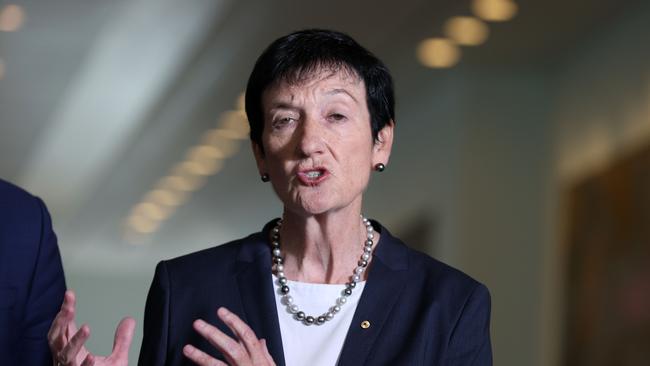‘Team Australia’ needed to boost Asia ties: report
A new action group should advise government and business on how to boost trade and investment in Asia, a report recommends.

A new report has recommended a “Team Australia” approach to boosting economic ties with Asia, with the establishment of a new Asia business action group to advise government and business on ways to “diversify and grow” trade and investment.
The Asia Taskforce report, by the Business Council of Australia and the Asia Society, was launched in Canberra on Wednesday by Federal Trade Minister Dan Tehan.
It says diversifying Australia’s trade partnerships in Asia should be a “key priority” in the wake of the sharp deterioration of political and trade ties with China.
The report says the Team Australia approach, using close co-operation between government and business to help boost economic ties with Asia, should be used to increase Australia’s global exports from its 2019 level of 29 per cent to 35 per cent by 2030.
The report says the COVID-19 pandemic and the deterioration of Australia’s political ties with China were a reminder of the need for more active economic engagement with Asia.
But it says that diversification should be part of a “China and” approach rather than being a “China or” policy.
Titled “A Second Chance,” the report says Australian businesses should invest far more in developing Asia capabilities at board and senior executive level, regular “high impact” business missions to Asia and leveraging the resources and connections of the Australia-Asia diaspora.
It recommends the establishment of an Asian business action group of senior business leaders with experience in Asia who would “champion trade and investment growth in Asia” and provide high level advice to government and business.
The action group would identify priority opportunities to develop greater trade and investment ties with Asia and advise on ways to pursue these through closer co ordination between government, business and academia.
The report comes amid the sharp deterioration of Australia’s political and trade ties with China and the closure of Australia’s international travel borders for more than a year.
Business leaders are also concerned that the relatively slow rollout of the vaccine in Australia is extending international border closures and will hamper Australia’s trade potential, particularly in Asia.
Releasing the report, PwC Australia Asia practice leader Andrew Parker, said Australia risked “letting the opportunities in Asia pass us by”.
“Australia has done relatively well during the pandemic, but if we don’t move fast to capitalise on our advantage, our competitors will.”
Mr Parker said Asia had a different operating environment than Australia but “managing risk in Asia is possible.”
Business Council chief executive Jennifer Westacott said that while government had a role to play in support, business needed to step forward and focus on growth in Asia.
“Australia has never had a better hand to play in Asia,” she said.
“We now need to play it with bold and intelligent moves.
“A national ‘Team Australia’ approach will give business more confidence to develop a wider range of sustainable trade and investment pathways to Asia,” she said.
Asia Society chief executive, Philipp Ivanov, said Asia accounted for 40 per cent of global GDP and was likely to do better than most developed economies as the world recovered from the pandemic.
“We need to shift our attitudes and see Asia as more than just an export market,” he said.
Mr Ivanov said it should be considered as a “series of diverse markets that offer great opportunities on the ground.”
He said Australia needed to improve its Asia literacy and make better use of the Asian-Australian diaspora as well as adjust policies to remove barriers and encourage innovation.
Taskforce chairman, Mark van Dyck, the Asia Pacific managing director of Compass Group, said the experience of companies such as Cochlear, ResMed, Treasury Wine Estates and Lend Lease had shown that Australian companies could operate successfully in Asia.
The report says the business action group should advise on and co ordinate “high impact” business missions to Asia.
It says the national team approach to expanding trade ties with the region had worked well in countries like Singapore and Japan.
The report notes that there are significant business opportunities in “new frontiers” such as the growing economies of South Korea and Vietnam.
The report says Australia must “learn to navigate a more complex China.”
It says Australia’s ties with China were the worst they had been in the 50 years since the establishment of diplomatic relations.
It says that Australia has much to learn from other countries in the region such as Japan, Vietnam and South Korea, which have navigated difficult relations with China going back decades.
It says improving China ties will “require strategic patience, avoiding over-reaction and emotion, maintaining long established personal networks” and being prepared to continue to co operate on issues that benefit both countries.
The report recommends that business and the federal government work together to organise a high level trade mission to China as soon as travel restrictions are lifted.




To join the conversation, please log in. Don't have an account? Register
Join the conversation, you are commenting as Logout